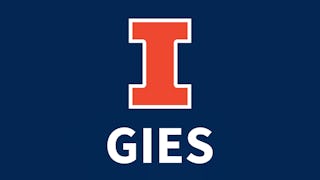- Browse
- Music Theory
Music Theory Courses
Music theory courses can help you learn chord progressions, scales, rhythm, and harmony. You can build skills in reading sheet music, analyzing compositions, and creating original pieces. Many courses introduce tools like notation software and digital audio workstations, that support composing and arranging music. You'll also explore concepts such as counterpoint, form, and orchestration, allowing you to apply your knowledge in various musical genres and styles.
Popular Music Theory Courses and Certifications
 Status: Free TrialFree Trial
Status: Free TrialFree TrialSkills you'll gain: Design Thinking, Data Science, Process Design, Strategic Thinking, Data Pipelines, Data Validation, Data Processing, Workflow Management, Data Cleansing, Data Quality, Business Priorities, NumPy, Machine Learning, Python Programming
4.3·Rating, 4.3 out of 5 stars186 reviewsIntermediate · Course · 1 - 4 Weeks
 Status: Free TrialFree TrialU
Status: Free TrialFree TrialUUniversity of Colorado Boulder
Skills you'll gain: Unsupervised Learning, Supervised Learning, Deep Learning, Recurrent Neural Networks (RNNs), Machine Learning Algorithms, Model Evaluation, Exploratory Data Analysis, Dimensionality Reduction, Convolutional Neural Networks, Applied Machine Learning, Generative Adversarial Networks (GANs), Decision Tree Learning, Autoencoders, Scikit Learn (Machine Learning Library), Keras (Neural Network Library), Classification Algorithms, Artificial Neural Networks, Data Science, Machine Learning, Python Programming
Build toward a degree
3.4·Rating, 3.4 out of 5 stars129 reviewsIntermediate · Specialization · 3 - 6 Months
 Status: Free TrialFree TrialU
Status: Free TrialFree TrialUUniversity of Illinois Urbana-Champaign
Skills you'll gain: Mergers & Acquisitions, Private Equity, Business Valuation, Investment Banking, Price Negotiation, Capital Markets, Accounting, Corporate Tax, Corporate Strategy, Financial Modeling, Financial Management, Corporate Finance, Strategic Planning, Financial Analysis
4.7·Rating, 4.7 out of 5 stars64 reviewsIntermediate · Course · 1 - 3 Months
 Status: NewNewStatus: Free TrialFree Trial
Status: NewNewStatus: Free TrialFree TrialSkills you'll gain: Purchasing, Workflow Management, Business Workflow Analysis, Supplier Relationship Management, Internal Communications, Systems Thinking, Process Mapping, Operational Efficiency, Contract Management, Proposal Writing, Procurement, Negotiation, Strategic Thinking, Team Leadership, AI Enablement, Leadership, Operations Management, Communication, Business, Team Management
4.6·Rating, 4.6 out of 5 stars253 reviewsBeginner · Specialization · 1 - 3 Months
 Status: Free TrialFree TrialU
Status: Free TrialFree TrialUUniversity of Michigan
Skills you'll gain: Responsible AI, Generative AI, Governance, Data Governance, Data Management, Compliance Management, Consumer Behaviour, AI Enablement, Social Impact, Business Risk Management, Business Operations, Data Ethics, AI Product Strategy, Artificial Intelligence, Risk Analysis, Automation, Stakeholder Management, Human Resources, Leadership and Management, Risk Management
4.7·Rating, 4.7 out of 5 stars303 reviewsBeginner · Specialization · 1 - 3 Months
 Status: Free TrialFree Trial
Status: Free TrialFree TrialSkills you'll gain: Technical Support, Hardware Troubleshooting, Cloud Computing, Cloud Services, Cybersecurity, Help Desk Support, System Support, Network Troubleshooting, Computer Hardware, Customer Service, General Networking, Data Storage, Issue Tracking, Operating Systems
4.8·Rating, 4.8 out of 5 stars183 reviewsIntermediate · Course · 1 - 3 Months
 Status: PreviewPreviewU
Status: PreviewPreviewUUniversità Bocconi
Skills you'll gain: Human Capital, Governance, Sustainable Development, International Relations, Strategic Thinking, Human Resources, Cultural Diversity, International Finance, Policy Development, Stakeholder Management, Strategic Partnership
4.8·Rating, 4.8 out of 5 stars217 reviewsMixed · Course · 1 - 3 Months
 Status: Free TrialFree TrialU
Status: Free TrialFree TrialUUniversity of Illinois Urbana-Champaign
Skills you'll gain: Marketing Analytics, AI Personalization, Advanced Analytics, Customer Retention, Analytics, Marketing Effectiveness, Predictive Modeling, Marketing, Data Analysis, Social Network Analysis, Customer Analysis, Data Ethics, Customer Insights, Market Analysis, Text Mining, Predictive Analytics, Marketing Strategy and Techniques, Digital Marketing, Machine Learning, Generative AI
Build toward a degree
4.5·Rating, 4.5 out of 5 stars189 reviewsIntermediate · Course · 1 - 4 Weeks
 Status: Free TrialFree TrialU
Status: Free TrialFree TrialUUniversity of Colorado Boulder
Skills you'll gain: Graph Theory, Data Structures, Algorithms, Tree Maps, Network Analysis, Computational Thinking, Python Programming
Build toward a degree
4.6·Rating, 4.6 out of 5 stars182 reviewsAdvanced · Course · 1 - 4 Weeks
 Status: PreviewPreviewF
Status: PreviewPreviewFFundação Lemann
Skills you'll gain: Strategic Planning, Action Oriented, Strategic Leadership, Organizational Strategy, Leadership and Management, Education and Training, Strategic Thinking, Performance Metric, Quality Management, Analysis, Community Development, Program Evaluation, Data-Driven Decision-Making
4.6·Rating, 4.6 out of 5 stars146 reviewsMixed · Course · 1 - 3 Months
 Status: Free TrialFree TrialU
Status: Free TrialFree TrialUUniversity of Colorado Boulder
Skills you'll gain: Systems Thinking, Cross-Functional Collaboration, Project Planning, Stakeholder Analysis, Business Systems Analysis, Sustainable Development, Strategic Leadership, Corporate Sustainability, Social Impact, Team Leadership, Business Leadership, Diversity and Inclusion, Strategic Thinking, Cultural Responsiveness, Organizational Strategy, Project Management, Communication Strategies, Environmental Social And Corporate Governance (ESG), Ethical Standards And Conduct, Relationship Building
4.4·Rating, 4.4 out of 5 stars250 reviewsBeginner · Specialization · 1 - 3 Months
 Status: PreviewPreviewU
Status: PreviewPreviewUUniversity of Illinois Urbana-Champaign
Skills you'll gain: Multimedia, Liberal Arts, Social Justice, Oral Expression, Music, World History, Creativity, Aesthetics, Writing and Editing
4.3·Rating, 4.3 out of 5 stars106 reviewsBeginner · Course · 1 - 3 Months
In summary, here are 10 of our most popular music theory courses
- AI Workflow: Business Priorities and Data Ingestion: IBM
- Machine Learning: Theory and Hands-on Practice with Python: University of Colorado Boulder
- Finance of Mergers and Acquisitions: Designing an M&A Deal: University of Illinois Urbana-Champaign
- Business Execution: Ops, Team Management & Communication: Coursera
- Responsible Generative AI: University of Michigan
- Technical Support (IT) Case Studies and Capstone: IBM
- Management of International Development: Towards Agenda 2030: Università Bocconi
- Applying Data Analytics in Marketing: University of Illinois Urbana-Champaign
- Trees and Graphs: Basics: University of Colorado Boulder
- Gestão para a Aprendizagem: Módulo Gestão Estratégica: Fundação Lemann










